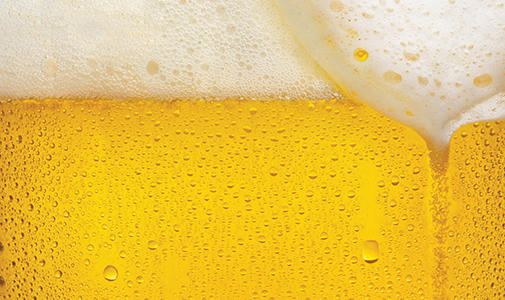Date:
Location:

This event is sold out. Tickets will not be available at the door.
Wine, beer, sake, coffee, kombucha, yogurt, cheese, chocolate. Discover how our favorite foods are created by tiny microbial “chefs.” Indulge in the edgy intersection of microbiology and cooking to learn how these microbes make their magic. Food and drink will be served at this 21+ event.
During this event, you can:
- Taste a variety of food and beverages created by microorganisms.
- Interact with microbial scientists.
- Meet representatives from Aeronaut Brewing Co. and learn about the science behind their beers.
- Participate in a flash presentation about the science behind fermented foods—from sauerkraut and kimchi to an aged cheese rind.
- Explore the exhibition Microbial Life: A Universe at the Edge of Sight
- Visit the museum’s sixteen exhibitions.
Advance tickets required. This event is sold out. Tickets will not be available at the door.
Tickets include museum admission, one drink ticket and four food tastings.
Wine and a selection of Aeronaut beers will also be available for purchase.
All attendees must be 21+ (valid government ID is required for entry)
Free event parking is available at the 52 Oxford Street Garage.
Flash Presentation
Join Esther Miller and Elizabeth Landis in a multisensory exploration that uses microscopy, smell, and taste to uncover how bacteria, yeasts, and molds determine the flavors and textures of breads, cheeses, and fermented vegetables.
There will be two presentations, one at 8:00 pm and one at 8:45 pm to accommodate all attendees. Seating is available on a first-come, first-served basis.
Speaker Bios
Elizabeth Landis studies microbes (bacteria and yeast) in fermented foods. After completing her master’s degree in soil microbiology, she joined the lab of Dr. Benjamin Wolfe at Tufts University in 2015. She is collecting and characterizing samples of kombucha tea and sourdough bread starters to explore how the species present in these foods interact and evolve over generations of fermentation. She is especially interested in uncovering the incredible and largely unknown diversity that resides in home fermentations around the world.
Esther Miller, also in Dr. Wolfe’s lab, studies the ecology of bacteria naturally present on cabbage leaves. Her research focuses on lactic acid bacteria—organisms that are crucial to vegetable fermentation. Little is known about how these bacteria colonize cabbage leaves and how they thrive in these miniature ecosystems. Using field and lab experiments, she is researching how other microorganisms affect the growth of these lactic acid bacteria.
